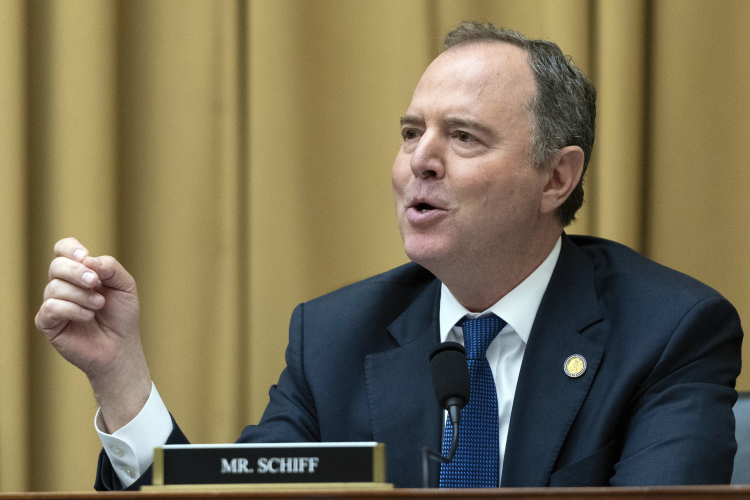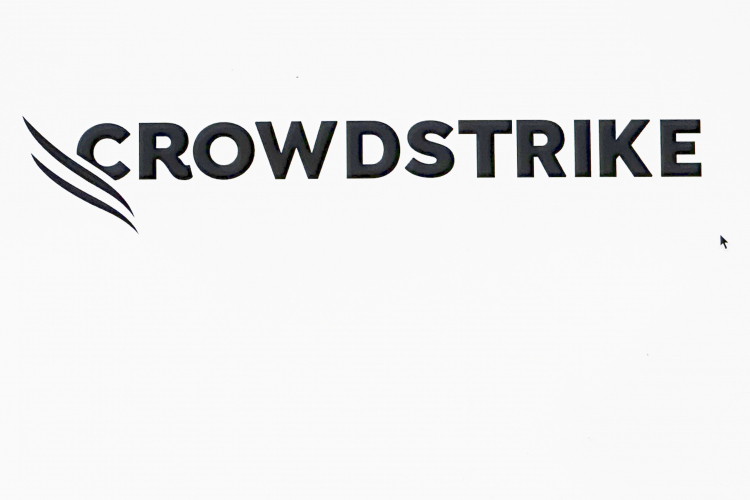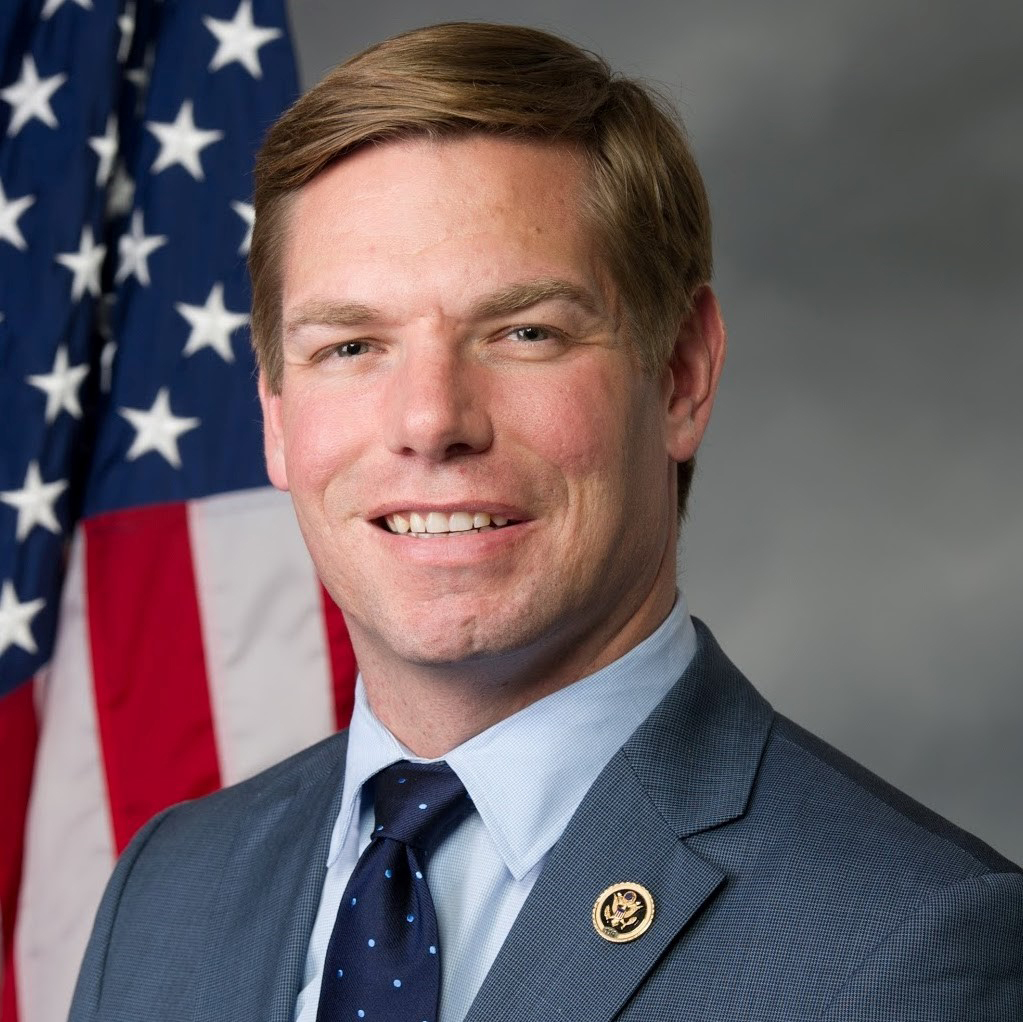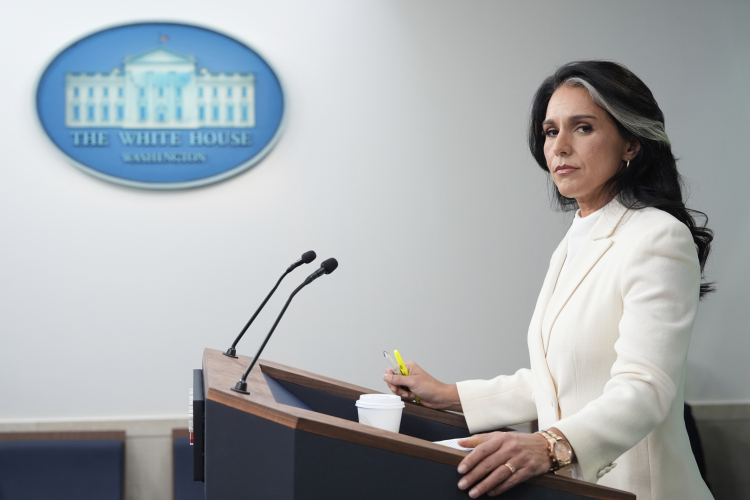Recently declassified documents indicate that people close to former FBI Director James Comey and Democratic Sen. Adam Schiff were connected to leaks of classified information to prominent reporters designed to portray Donald Trump and his allies as being in league with Russia.
![The 2018 Pulitzer Prize [National Reporting] Intel Today: Photo by Eileen Barroso](https://assets.realclear.com/images/69/697057_5_.jpg)
Written in 2017, the FBI documents expose how selected Washington reporters, including Ellen Nakashima of the Washington Post and Michael Schmidt of the New York Times, scored a series of Pulitzer Prize-winning scoops in 2017 by repeating false and inflammatory leaks during President Trump’s first term.
Much of their reporting has been debunked – and shown to be part of a smear campaign by high-ranking officials to undermine Trump, but the identities of those leakers have remained hidden because of the government’s apparent unwillingness to expose its own and the refusal of reporters to identify the people who misled them and the nation.
Although the heavily redacted recent disclosures do not specifically identify the suspected leakers, an RCI analysis of the documents strongly suggests that people close to Comey and Schiff, among others, were feeding the reporters information to advance the Russiagate hoax.
The documents reveal a cascade of misdeeds and failures. These include the effort of government officials to create and leak misleading classified information to favored reporters and the failure of reporters to scrutinize the information they were given before rushing it into print; and the subsequent failure of federal investigators to hold anyone accountable for the breaches of security.
The documents also detail the incestuous nature of media-government relationships inside the D.C. Beltway. In some cases, spouses and friends of government officials and reporters were used to spread damaging misinformation about Trump, making it difficult for federal investigators to follow the trail of illegal disclosures.
“All of these cozy friendships of leakers and leaker recipients, many of whom are married to each other, are precisely why reporters adore hiding their sourcing behind walls of ‘senior administration officials’ or ‘senior U.S. officials’ and associated disguises,” said Tim Graham, director of media analysis for the Media Research Center, a Washington-based journalism watchdog group.
‘Topple the Administration’

The new disclosures include the previously sealed testimony of an FBI informant who’d worked on the Democratic side of the House Permanent Select Committee on Intelligence for more than a decade, who told agents that “all hell broke loose” after Trump’s surprising 2016 election win. In February 2017, he asserted, Schiff, then a House member, hatched a plan to weaponize U.S. intelligence to smear Trump in the media as a Kremlin conspirator with the goal of triggering his impeachment. Schiff was the ranking Democratic member of the committee at the time.
“Leaking the information was one way to topple the administration,” the source told the FBI in August 2017, adding that “everything is directed at Trump and trying to get him impeached.”
To that end, Schiff formed a “Russia team” within the committee to view and disseminate classified material on Trump that it requested from the CIA and FBI, the informant said. Main team members allegedly included Schiff staffers Rheanne Wirkkala and Timothy Bergreen. Schiff’s staff director, Michael Bahar, and his communications director, Patrick Boland, allegedly “orchestrated” the smear campaign.
A spokesperson for Sen. Schiff "categorically" denied the allegation against Boland, now Schiff's chief of staff, and claimed that the FBI informant was "a disgruntled former staffer who was fired by the House Intelligence Committee in early 2017 for a pattern of inappropriate conduct, including mistreatment of staff and compromising activity on foreign official travel."
Records, however, show the informant left the committee in September 2017, and had made his allegations to the FBI in interviews with agents while he was still on staff, according to FBI-302 summaries.
Wirkkala, Bergreen and Bahar did not respond to requests for comment.
The FBI source, “who considered Schiff a friend,” told agents that he was called into the 2017 meeting during which Schiff specifically authorized leaking classified “dirt“ to reporters.
“In this meeting, SCHIFF stated that the group would leak classified information which was derogatory to President of the United States Donald J. Trump,” said the FBI interview report, known as an FD-302, which noted that the whistleblower memorialized the Monday, Feb. 13, 2017, staff meeting in an email he sent to himself the next day. “SCHIFF stated the information would be used to indict President TRUMP.”
Schiff has denied the allegations. The FBI subpoenaed some of the California lawmaker’s communications records, but never charged him with a crime. (Schiff is currently under investigation for possible mortgage fraud.)
The anonymous whistleblower – whose name is blacked out in the FBI reports, but according to multiple sources is Robert Minehart – worked as policy advisor to Schiff on the minority side of the intelligence committee. He first joined the committee in 2005, after then-ranking Democratic Rep. Jane Harman of California recruited him from the National Security Agency, where he worked as an engineer.
Minehart left the panel in late 2017 after he said Schiff loyalists “marginalized” him for complaining to both the committee’s security chief and the CIA’s inspector general about “the rampant leaking” of classified information. He told FBI field agents he believed the classified leaks were “unethical and treasonous,” but was reluctant to complain about them to the FBI congressional liaison office because he viewed the officials there as “too embedded with HPSCI staff and cannot trust them.”
Former committee staffers who worked with Minehart said he was a well-respected intelligence professional who was concerned with safeguarding classified information. They viewed him as credible, reliable, and nonpartisan.
“I remember Bob as a former NSA [engineer] who worked the NSA account for the Democrats,” said Fred Fleitz, a former CIA analyst who served under former GOP House Intelligence Committee Chairman Mike Rogers. “But he was never part of the Democrat partisanship on the committee.”
Federal Election Commission records show Minehart has donated to both Democratic and Republican congressional candidates. Though he hasn’t contributed directly to any presidential campaign, he gave money to a PAC tied to Trump in both 2022 and 2023. Attempts to reach Minehart, now a technology consultant based in Northern Virginia, were unsuccessful.
Leaking to the Press
Starting in 2016, FBI investigative documents show that Ellen Nakashima was the go-to reporter for intelligence community leaks on Trump and later became the subject of four separate leak investigations. In June of that year, she broke the seminal story in the Washington Post, alleging that “Russian government hackers penetrated DNC.” This claim, which was the first effort to insert Russia into the 2016 election, was advanced by the

Democratic cybersecurity contractor CrowdStrike. As RCI has previously reported, CrowdStrike’s president, Shawn Henry, later confessed in closed-door congressional testimony that CrowdStrike lacked “concrete evidence” to support its finding that Moscow was to blame for stealing emails and other DNC data published by WikiLeaks. Nakashima, who reported that the DNC breach was foreign “espionage” and not the work of criminal hackers, never revisited her original story after contradictory facts emerged.
In early December 2016, Nakashima and her colleagues were leaked a “secret CIA assessment” that found Russia was trying “to help Trump win the White House,” according to her scoop. Nakashima reported that this was the “consensus view” of the Intelligence Community, citing “a senior U.S. official” who’d been briefed on the material. Nakashima quoted Schiff at the end of her story. Later documents showed that there was no consensus. Many CIA and other intel analysts dissented from the view and believed Moscow’s aim was simply to undermine confidence in U.S. elections.
Less than three months after Trump took office, Nakashima was the lead reporter on another seeming blockbuster story advancing the Russian “collusion” narrative pushed by Democrats – that the FBI had obtained a wiretap warrant under the Foreign Intelligence Surveillance Act to monitor former Trump campaign adviser Carter Page as “an agent of Russia.” FISA information is highly classified and almost never disclosed. But Nakashima was the beneficiary of the unusual leak, and on April 11, 2017, she reported: “This is the clearest evidence so far that the FBI had reason to believe during the 2016 presidential campaign that a Trump associate was in touch with Russian agents.”
Only, it turns out that Page never met with the Russian agents, and the wiretap warrant application – later invalidated by the FISA court – was also based on the bogus Clinton-funded opposition research known as the Steele dossier. She attributed her reporting to unnamed “U.S. officials.” Deep in her article, she once again quoted Schiff on the record.
The Schiff staffers who allegedly funneled secrets to Nakashima gathered them from CIA and FBI “read rooms” Schiff had asked the agencies to set up, according to information provided to the FBI.
The documents indicate that some of the leaks may have been laundered through a “cut-out” who happened to be the husband of a Schiff loyalist on the Democratic staff of the House Intelligence Committee. The husband, then a reporter for the Baltimore Sun, knew Nakashima from their days working together at the Post.
Though their names are hidden under redactions, federal authorities confirmed that the former Schiff staffer who allegedly divulged the information is Rheanne Wirkkala, and the “cut-out” is her husband Ian Duncan, then a reporter for the Sun.
“[Wirkkala]’s spouse has worked with Ellen Nakishima [sic] of the Washington Post,” the FBI report states. “[Wirkkala] provided information to her husband who had brokered it out to other reporters,” including allegedly Nakashima.
A Democrat donor, Wirkkala also helped Schiff prosecute the first impeachment of Trump in 2019 as his deputy director of investigations.
In 2021, Wirkkala left the House Intelligence Committee to take a high-level Pentagon post in the Biden administration. She now works for Clarion Strategies, a D.C.-based consulting firm co-founded by Julianne Smith, who appears in a recently declassified intelligence report as the Hillary Clinton campaign adviser who solicited Obama White House officials for compromising material on Trump and Russia in 2016. President Obama’s former Chief of Staff Denis McDonough is a principal in the firm.
Wirkkala did not respond to requests for comment. Her husband, Duncan, is now working at the Washington Post.

Records also show that Nakashima was also communicating with former senior Senate Intelligence Committee staffer James Wolfe, who was investigated for leaking classified materials on Trump aide Page and ultimately convicted of lying to FBI agents about contacting Nakashima and other reporters.
From December 2015 to June 2017, Nakashima and Wolfe exchanged emails at least five times, according to court records. In one exchange, Nakashima allegedly sent Wolfe a code to use in an encrypted messaging application. In another, she allegedly discussed “obtaining the SSCI’s public Wi-Fi password.”
During a March 2021 event addressing “National Security Leaks” – where she shared the stage with a prime driver of the Russiagate hoax, former CIA Director John Brennan – Nakashima dismissed complaints by media critics that she acts as a “stenographer” for the Intelligence community. “The public has a wildly inaccurate view of how I as a national security reporter go about my job,” she said at the symposium. “It’s not that I get a story because someone decided to leak it to me and hand it to me on a silver platter.”
In a recent statement, Post Executive Editor Matt Murray defended the veteran reporter’s integrity, asserting: “For three decades, Ellen Nakashima has been one of the most careful, fair-minded, and highly regarded reporters covering national security.”
However, a former Washington Post colleague of Nakashima said that, like many reporters who won Pulitzers for their Russiagate coverage, she was too reliant on anti-Trump sources and is “too invested” in the fast-unraveling story now to look back and reassess it with fresh eyes.
Noting that Nakashima has not cleared up the record by identifying her sources in the intelligence community who fed her information that turned out to be wrong or misleading, the former senior Post reporter said Nakashima is protecting them, even as some of them fall under criminal investigation for their role in perpetuating a massive fraud against the president.
“She’s running interference [for them], and worrying about her own reporting looking bad,” said the Post source, who spoke on the condition of anonymity.
Cozy Relationship
A similarly cozy relationship was forged between Michael Schmidt of the New York Times and Columbia University law professor Daniel Richman, a close friend of Comey. After Trump fired Comey in 2017, the FBI documents note, “Comey used Richman as a conduit to convey to the media memoranda of his meetings with President Trump,” which were classified.

The newly released FBI memos reveal that Schmidt, who is married to anti-Trump MSNBC host Nicolle Wallace, spent considerable time with Richman, who was later investigated for leaking classified material to Schmidt. Richman told the FBI he spoke to journalists “to correct stories critical of Comey, [and] the FBI and to shape future press coverage.” Richman told agents “he did not know who gave Schmidt the classified information,” but he was “pretty sure” it wasn’t him, before hedging that he was sure “with a discount.” He also claimed Comey “never asked” him to talk to the media.
Like Nakashima, Schmidt credulously reported every angle of the Russiagate investigation despite the paucity of “collusion” evidence.
One of those Times stories, “Comey Tried to Shield the F.B.I. From Politics. Then He Shaped an Election,” became the subject of a years-long leak investigation. The April 22, 2017, article gave a supposed insider account of how Comey handled the investigations of Clinton’s email scandal and Russiagate during the 2016 election. But it was clearly spun in Comey’s favor. “Partisanship was not a factor in Mr. Comey’s approach to the two investigations,” Schmidt wrote. “In the case of Mr. Trump, he conducted the investigation by the book.” In fact, two independent investigations found serious misconduct in both probes.
FBI documents also reveal that former FBI officials Peter Strzok and Lisa Page made three separate trips to the New York Times in 2017 before the Schmidt article was published – on March 10, March 30, and April 10 – to provide “investigator-level” briefings to Times editors and reporters – all concerning the same flattering story about Comey. They discussed classified information during the briefings, the documents say.
Schmidt’s May 2017 article, “Comey Memo Says Trump Asked Him to End Flynn Investigation,” helped pressure the appointment of Special Counsel Robert Mueller to take over the Russiagate case. Mueller focused on potential obstruction, but in the end found no evidence for obstruction or collusion.
Nonetheless, Schmidt’s work was among the newspaper’s 2018 Pulitzer-winning stories on Russiagate. The three-way friendship between Schmidt, his source, and the subject of his story was not disclosed to the Pulitzer board – or the Times readership. “Schmidt visited Richman’s house numerous times,” the FBI documents reveal.
A New York Times spokeswoman, Danielle Rhoades-Ha, said that the stories using Richman as a source "raise no concerns about the accuracy of The Times’s reporting, which relied on multiple sources." Asked about the veracity of reporting about Comey allegedly conducting the Russiagate investigation "by the book," the Times did not respond.Richman was not charged with perjury or leaking classified information. Neither was Comey, although he is currently under investigation for possible false statements to Congress.
Another Trump-Russia conspiracy reporter, Shane Harris, also allegedly received classified intelligence from Schiff’s committee when he worked for the Wall Street Journal.
Whistleblower Allegations
The FBI whistleblower claimed that within 24 hours of Democratic House intelligence panel member Eric Swalwell receiving a CIA document, some of the information in it showed up “almost verbatim” in a July 1, 2017, article by Harris that referred to “Russian hackers.” Published under the headline, “GOP Activist Who Sought Clinton Emails Cited Trump Campaign Officials,” the story by Harris and several colleagues cited as sources, “U.S. officials with knowledge of the intelligence.”
“[CIA] officials descended upon HPSCI’s offices, threatening to stop providing information unless the leaking ended,” recounted the FBI’s summary of the whistleblower interview.

The committee whistleblower suspected Swalwell “played a role in the leak,” noting the California Democrat “previously had been warned to be careful because he had a reputation for leaking classified information.” An outspoken Trump critic, Swalwell has denied being the source of leaks.
Shane Harris, who later jumped to the Washington Post before recently landing at The Atlantic, did not respond to requests for comment.
FBI investigators wrote that the committee whistleblower “advised it is likely the leaks are being conducted through cutouts.” They added, “He believed some individuals may be using their spouse’s phones to contact the media” and “conceal” their leaks.
One of these individuals was believed to be Schiff’s staff director, Michael Bahar, a Democrat and former Obama adviser who led the committee’s Russiagate investigation and became the FBI’s prime suspect in its leak investigation.
During a February 2017 committee meeting, the whistleblower told FBI agents that Bahar “instructed the staff to collect information from the USIC [U.S. Intelligence Community] for purposes of making it public.”
After Bahar left the committee in June 2017, the whistleblower alleged, he continued to leak information he received from a protege he placed on the panel to “relay” classified material. While the protege’s name is hidden under redactions, authorities confirmed the staffer is Thomas Eager.
“[Eager] functioned as [Bahar’s] insider at the committee,” according to an FBI report, even though “committee rules prohibited communications with former staffers on official matters.”
“He [Eager] tells [Bahar] what he learned and [Bahar] takes it to the media,” the whistleblower alleged in an August 2017 FBI interview.
No charges were filed against either Eager or Bahar, who did not reply to requests for comment.
Ineffective Investigations
Declassified documents show that the FBI and DOJ launched no fewer than seven classified leak investigations that centered on 2017 reporting on the Russiagate investigation. They targeted several high-ranking Obama officials, two Democratic members of Congress – Schiff and Swalwell – and more than three dozen Hill staffers from both parties (including now-FBI Director Kash Patel, then a House intel lawyer for chairman Devin Nunes), along with numerous journalists who were on the receiving end of the leaks.
None of the probes led to a single prosecution for espionage or mishandling secrets.
Critics say the investigations – conducted under the leadership of Comey’s deputy Andrew McCabe, who was himself investigated by DOJ’s IG for leaking classified information to the media – were botched, likely on purpose.
“There hasn’t been nearly enough transparency on why those investigations didn’t result in any accountability for those responsible,” said Jason Foster, a former Republican staffer who served as chief investigative counsel to Senate Judiciary Committee Chairman Charles Grassley. Foster said DOJ subpoenaed his personal phone and email records while he worked on the Hill in 2017.
Seizing the communications records of suspected leakers and journalists was crucial to identifying the sources of the leaks in the massive conspiracy against Trump. But in their search warrants, investigators failed to include among the records they sought the deleted texts from the encrypted Signal app used by reporters and leakers, which they could have obtained by seizing cell phones.
And the telephone records they did obtain included only the phone numbers of the calls made to and from the targeted device over the specified time period, and the duration of the calls, but excluded what was texted in those phone calls. What’s more, the emails taken included just the metadata, not the content of the messages. The warrants covered only “non content communication records.”
Also, “the government did not seek local and long-distance telephone records for the two members of Congress” – Schiff and Swalwell, according to a December 2024 review of the FBI’s investigative efforts by former Justice Department Inspector General Michael Horowitz. “The compulsory process did not seek the content of any [of their] communications.”
In the Nakashima probe, agents oddly limited their search of her phone records to the period from April 15, 2017, to July 31, 2017, which meant that any contacts with House or Senate intel leakers prior to her April 11, 2017, story on the Page FISA warrants would not have been discovered. More curious, investigators never obtained any records from her work email accounts, even though the court approved such searches.
Agents also failed to obtain even the logs of the Google emails of Schmidt and three other New York Times reporters in their investigations of classified leaks to the Times in 2017, even though a judge authorized giving investigators access to the data.
The IG report said allegations from the “committee witness” – believed to be Minehart – “were not ultimately substantiated.” However, agents failed to pursue the phone records for some of the spouses whose phones were used by staffers he accused of leaking. And they never sought any of the phone records for an additional staffer ID’d by Minehart.
And while investigators focused on former Schiff staff director and general counsel Bahar as a prime leak suspect, they failed to obtain any of his emails while he served on the committee. The scope of their Google email search began after he left the House in June 2017.
A Curious Claim
Declassified FBI memos suggest that the bureau’s investigation was blunted by an unnamed House Intelligence Committee lawyer who advanced the curious claim that both members and congressional aides had immunity from criminal prosecution under the Constitution’s “speech or debate clause.”
The investigators’ deference to this novel notion apparently hampered the probe of Bahar, who visited the “read room” with the classified material in early 2017 and subsequently made contact by phone with Nakashima and other Post reporters who authored the articles that disclosed classified information, according to the IG report.
“To avoid gathering information that would be protected by the Speech or Debate Clause, the Google search warrant sought records beginning on the date the Senior Committee Staffer [Bahar] departed from government service,” the IG report said.
Investigators also limited what Apple phone records of Bahar they could use as evidence by applying “filter procedures to review the contents of the search warrant returns to segregate Speech or Debate material and attorney-client privileged material,” the report said.
In his report, then-DOJ IG Horowitz said that agents and prosecutors “ultimately determined that [Bahar] likely did not leak the classified information to the reporters and the investigation was closed without any charges being filed.” The IG report said that the search warrant application for Bahar's records noted that the "Committee Witness" — Minehart — was of "unknown reliability."
FBI documents indicate the New York Times leak investigation was opened by Joseph Pientka, the supervisory special agent who initially ran the Russiagate probe against Trump out of bureau headquarters. And the leak probe was overseen by DOJ official David Laufman, the Obama appointee and Democratic Party campaign donor who charged several Trump advisers under the Foreign Agents Registration Act.
Though the statute of limitations may be close to expiring, federal law enforcement sources say FBI Director Patel is considering reopening the leak investigations. The statutory clock for prosecuting the federal offense of disclosing classified information runs ten years. And there is no period of limitation for prosecuting espionage cases.
The evidence gathered from the investigations has not been destroyed, according to the IG report. Digital copies of the communications records obtained are stored in the FBI’s case management system, known as Sentinel, and hard copies are retained in a locked filing cabinet.
Media Collusion

Since Director of National Intelligence Tulsi Gabbard essentially reopened the Russiagate story by declassifying hundreds of pages of documents exposing how Obama administration intelligence was manufactured against Trump, the Washington Post and other major media have largely refused to report the story they once covered zealously.
They’ve even blacked out the claims of a former top ODNI cyber-analyst who said he was “pressured” to change his assessments about Russian election influence to fit the anti-Trump narrative.
“The same media that breathlessly reported every unverified claim in the Steele dossier now demands ‘context’ and ‘corroboration’ when faced with damning primary documents,” said Peter Flaherty, chairman of the National Legal and Policy Center in Washington. “This double standard – embracing unverified gossip when it suits their narrative but dismissing hard evidence when it doesn’t – reveals a media more interested in protecting Democratic allies than pursuing truth.”
For her part, Nakashima has trained her investigative sights on Gabbard, who claims the Post reporter has been “stalking” and “harassing” her and her staff, while calling intelligence officials from a “burner phone” to disguise her identity while trying to entice them into sharing derogatory information about Gabbard.
Some New York Times and Washington Post alumni who have won Pulitzers covering previous national security issues say they’re disappointed their former colleagues aren’t doing more to cover the declassification of Intelligence Community documents strongly suggesting the Trump-Russia “collusion” scandal was cooked up for political reasons.
“The documents that came out in the past couple of months are jaw-dropping. It’s rare to see such slam-dunk evidence of a conspiracy,” said former Washington Post investigative reporter Susan Schmidt. “But the entire mainstream media have been operating from an anti-Trump agenda, and they are not reporting on the exposé of the hoax that’s coming out.”
Former New York Times Pulitzer winner Jeff Gerth agreed: “The media aren’t looking for Russiagate [hoax] scoops, nor will they fairly present the ones others get if they reflect poorly on their prior reporting.”
“They’re in a defensive posture and aren’t inclined to report deeply on anything that helps Trump,” he explained.
Tim Graham said the release of FBI leak records proves the real scandal was never Russia collusion but “media collusion” – the collaboration between legacy media journalists and federal government malcontents who shared a common goal of knee-capping Trump.
Even though declassified documents expose their incestuous ties, Graham added, “these journalists still shamelessly pretend they didn’t collude with their fellow liberals at government agencies to undermine their domestic enemy Trump at every turn.”





